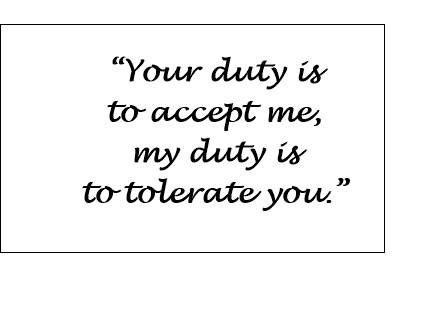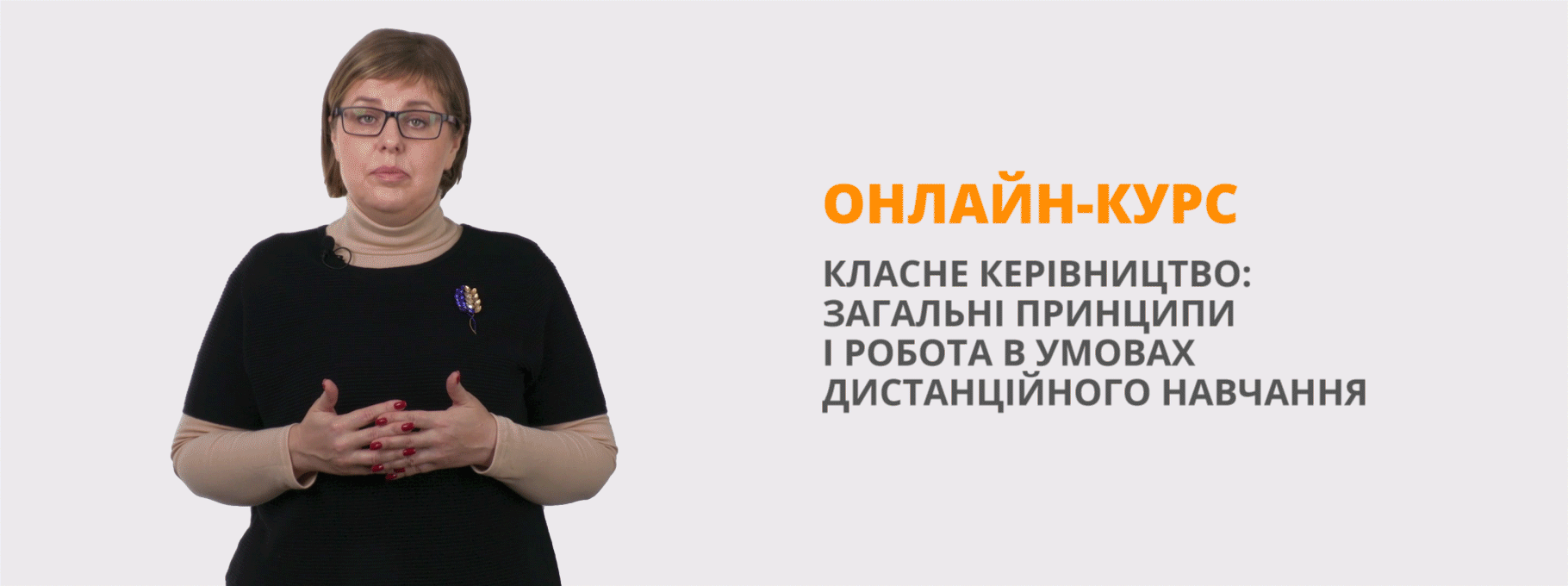Бінарний урок англійської мови та психології "Tolerance – is to accept and forgive"
Tolerance – is to accept and forgive
Tolerance is mutual respect
through mutual understanding.
Objectives:
- to practice different language skills (writing, speaking, listening);
- to develop students’ thinking, imagination, creativity;
- to help students be tolerant and kind;
- to teach students to work in groups.
Procedure
Warming – up
T: Good morning! Nice to see you!
Ss: Good morning! Nice to see you too!
T: How are you today?
( Students can answer in chorus or individually.)
T: Oh, look! I’m so worried today.
Ss: Why are you worried?
T: You know, my aunt promised to come to me yesterday but she didn’t.
I tried to phone her, but nobody replied. So, I worry about my aunt. And I wonder what you, young people, can worry about.
(Students answer.)
- We can worry about our health.
- I worry about my fish and a dog.
- As for me, I worry about my father because he is abroad on business.
- I worry about my mother and granny.
- As for me, I worry about my test in Foreign Literature.
- I worry about my brother because he went to Kyiv yesterday. He studies in the university.
Vocabulary work
T: You know, besides worrying about my aunt I care and worry about people living on our planet, because life nowadays is so complicated. And today I’d like to speak about relations among people. As you can see, some people are kind and hard-working, the others are silly and lazy. Those students who worry about wildlife and animals will sit around this desk and try to make mind map of positive traits of person’s character. Those who worry about school and learning will sit around that desk and make a mind map of negative features of character. But mind the time, you have got only 1 minute
generous faithful reliable

![]()
![]() honest
honest
![]()
cheerful


polite
![]()
![]() noble
noble
![]()
![]()
![]()
![]()
![]()
![]() brave gentle
brave gentle
active clever kind tolerant
selfish nervous cruel
![]()
![]()

 greedy
greedy
![]()
![]() boring
boring
![]()

![]()
naughty rude
jealous
(When time is up, representatives of each group read their mind maps.)
Speaking
T: Now you should choose one or two traits of characters, which you think are the most important. Give your reasons.
Possible answers:
- I think people should be clever because they can change the world.
- People should be kind because they can save the world from cruelty.
- I am sure people should be sincere and help the others.
- I think people should be generous because they can make other people happy.
Listening
T: There are no perfect people in the world. Each person has his/her own faults. So, we should be tolerant towards the faults of other people, and they’ll be tolerant towards your faults. You would not like if somebody laughed at you because you have red hair or like eating.
So, we should not laugh at other people. People should help each other to become perfect. And it is so interesting that people are different. If people were the same, they would resemble robots. It would be boring to communicate with other people if they had the same ideas, likes, tastes.
Our students, the members of our School Drama Club, have prepared a play for us. Would you perform your play, Nastia and Paul? Students, be attentive and give the title to this play.
(Ss perform a play)
The Oak Tree and the Grass
T: During a terrible storm one night, a shepherd overhead a conversation between the grass and an oak tree that he was lying under. The wind provoked the tree to bitterly complain.
S1(the Oak Tree):“This wind is a curse! The only thing one can do is to simply stand up and fight it!”
S2(the Grass): “Why fight? It will just make you tired. You should just learn how to accept it. Learn how to “bend with it” and you will be much happier. It’s part of life.”
S1(the Oak Tree):“Part of life? You will never be strong if you keep “bending” to every problem. No, you must NEVER bend. If you “give in” to the wind, it will just push you around! And this rain is yet another problem!”
S2(the Grass):“The rain, a problem? Yes, it’s coming down rather hard, but you should just accept it. It’s part of life.”
S1(the Oak Tree): “With that attitude, you will be simply washed away in a flood!”
T: The oak tree then went on to complain about the cold, the crickets, the clouds, and the animals that passed by. The next morning the shepherd woke up late to notice how beautiful, shiny and young the grass looked. The oak tree, however, looked quite old, its bark crinkled, creased and crumpled with lines of disdain and distaste.
S3( the Moral of the fable): “ Intolerance just leads to wrinkles”
Questions to answer:
1. What did the shepherd overhear one night?
2. What did the oak tree complain about?
3. What was the advice of the grass?
4. What did the shepherd see the next morning?
5. What is the moral of the fable?
Group Work
(The students are divided into 3 groups. Three situations are offered for discussion. They are written on separate cards. The situations are discussed in groups, and each of them is delivered by different students of the group.)
Situations:
- What would you do if you wanted to listen to rap and your sister gave preference to classical music?
- You want to travel to the seaside on your holidays but your parents want to rest on the Dnipro river in Kakhovka.
- You want to watch a football match but your father wants to watch a news programme, and you have got only one TV set.
Group1:
- All people are different. Different people have different tastes and hobbies.
- We are all unique and have something valuable to offer and share. I love and respect my sister. I try to respect her hobby. So, I would let her listen to classical music.
- Besides, I would listen to her music with her and perhaps it’s not so boring as I thought before. I’ll accept it.
- So, tolerance is being respectful and friendly.
Group2:
- Of course our parents are older and wiser then us and they know better how to spend our holidays.
- We, as tolerant people, will obey them and keep their advice. So, we will rest on the Dnipro river in Kakhovka and perhaps next time we’ll
spend our holidays at the seaside.
- So, tolerance is accepting another opinion.
Group3:
- As my father works hard every day and he is often tired I would let him rest and watch a news programme.
- I can watch the recorded football match next day.
- So tolerance is being caring.
Writing
T: People of all countries know that tolerance is the chance to live in peace. They try to be tolerant. That’s why people all over the world celebrate the Day of Tolerance on the 16-th of November.
We have already gathered a lot of ideas about tolerance. So, let’s make the Tree of Tolerance. These leaves will help you to do it. Write your ideas about tolerance on them.
(Teacher gives colourful leaves to students).
Possible variants:
- Tolerance is a chance to live in peace.
- Tolerance is a chance to make friends.
- Tolerance is accepting others even when they make mistake.
- Tolerance is the belief that one will be understood.
- Tolerance is readiness to accept a different opinion.
- Tolerance is standing up for kids who are being picked on at school.
- Tolerance is avoiding negative words to describe people.
( Students press these leaves to the carton tree and read their ideas).
T: I think this Tree of Tolerance will help us to be tolerant today and every day.
Summing-up
T: Tolerance is like a long powerful train and we are its passengers. Let’s sing a song about this train.
(Students sing a song “Get on board”and make movements forming
“a train”)
To sum up the lesson students read (in chorus)the saying written on the poster:



про публікацію авторської розробки
Додати розробку
